Mutus Liber 1/3
Hello friends,
in the next three posts I would to share with you the Mutus Liber.
The Mutus Liber, A Wordless Book or Mute Book is recognized as a classic of the 17th century alchemical tradition. It consists of 15 tables without a written comment, which represent vividly the alchemical process, in its development.
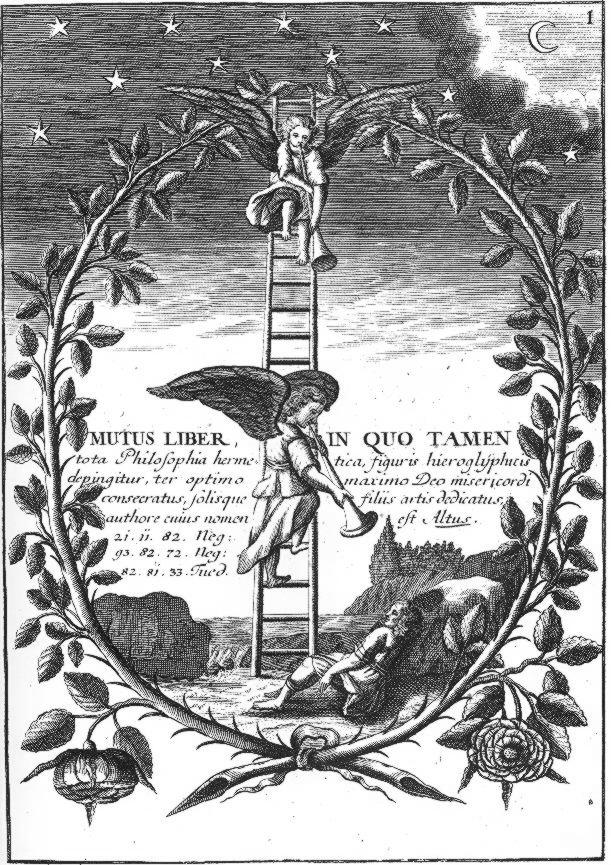
The mute book, in which the whole Hermetic philosophy is represented in the form of hieroglyphic images, consecrated to merciful God, three times the most excellent, and devoted exclusively to the children of Art, whose author is called Altus."
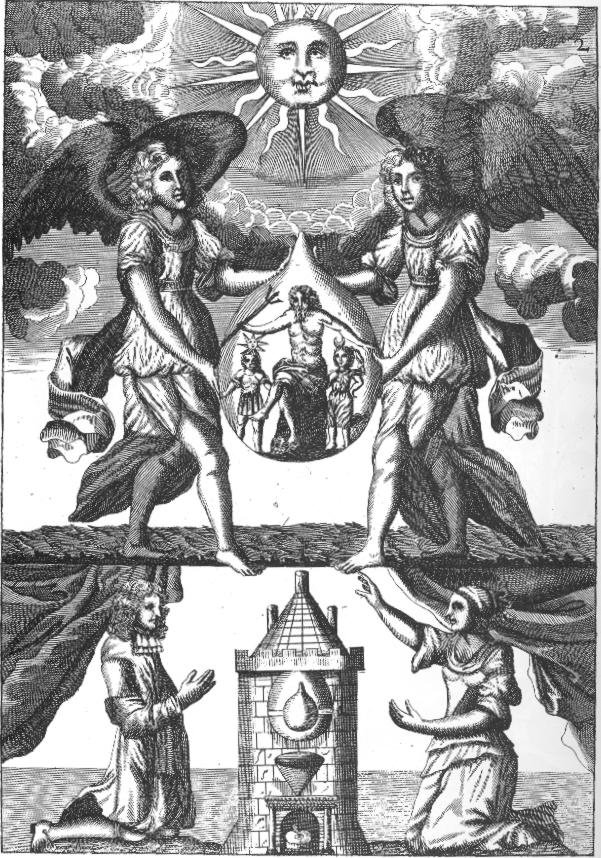
The angels in the first table awakened the dormant, now holding a closed vessel, the vase of philosophers, in which we see Poseidon, the god of the sea with the trident in his hand, who protects his children, Apollo (the sun), and Artemide (The moon), depicted children.
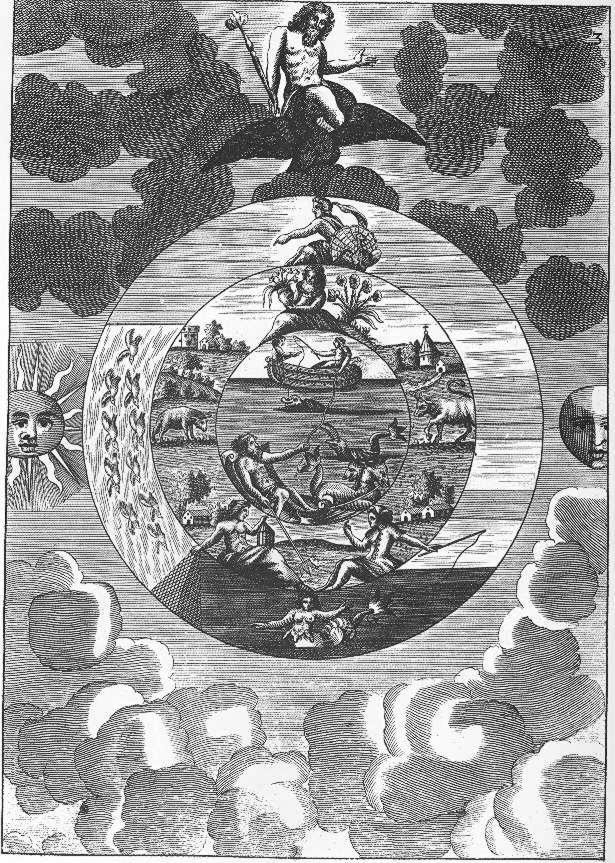
The third table is complementary to the second, explanatory of the ultimate purpose of the alchemist's mission.
To dominate three concentric worlds stands the figure of Zeus, father of all gods, with the lightning and the eagle that characterize him. The eagle, the symbol of the air, is the bird that can directly look at the Sun, a symbol of direct perception, of high intellectual ability, of knowledge. Here, however, is represented with the head of another bird, the phoenix, symbol of eternity and of the infinite cycle of life, as it dies and rises from its ashes itself. The mythical phoenix invokes the male principle, the fire, because it is after it has been burned by the flames, which revives itself; And in alchemy the fire represents the matter that comes from the state of the putrefaction, the nigredo.
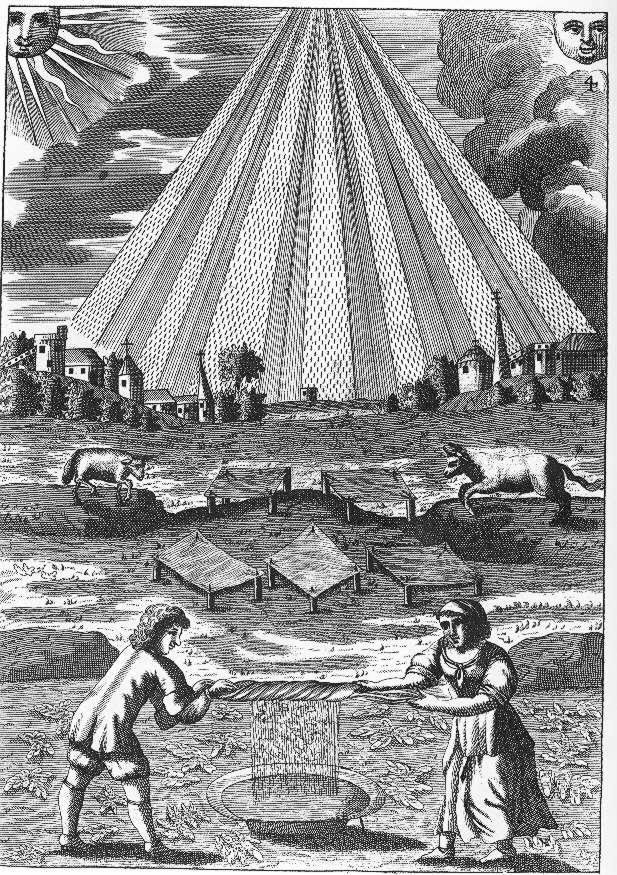
"Listen, O skies, I want to talk, Give the earth the words of my mouth, Strip my doctrine as rain, Get down as my drip as a dew, Like a scourge on the grass of the lawn, Like spraying on the stems of wheat."
And in Isaiah 26: 19-20 we read:
". Again, your dead will live,
Their corpses will rise.
They will wake up and exult
Those who lie in dust,
Because your dew is bright dew
The earth will give light to the shadows "
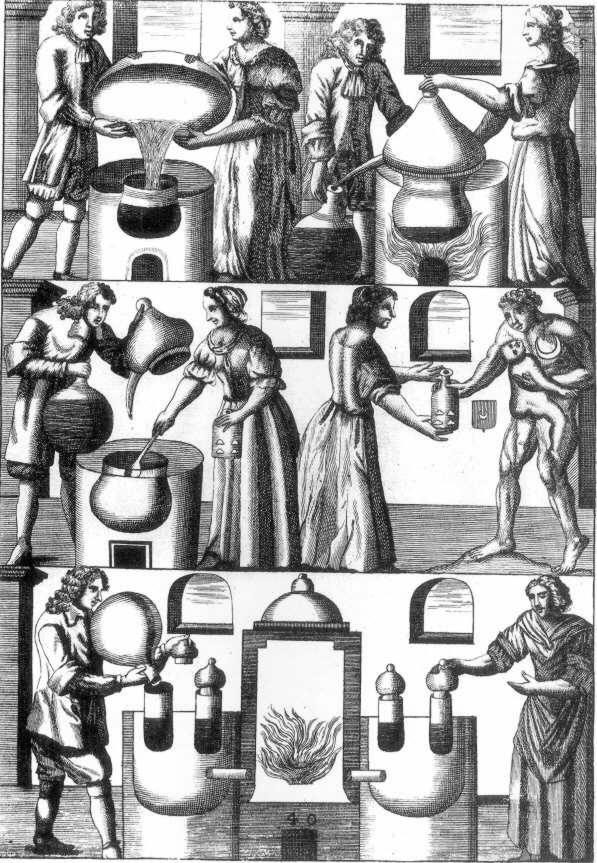
There are two versions in Greek mythology about the story of Hephaestus: a tale that had been generated by the Era alone, jealous that Zeus had created Athena from his head. A child born of hatred and not of love, could only be ugly and deformed, and was, ashamed of him, dismissed him from his sight and that of the other gods and flung him down from Mount Olimpo. Grown up, Hephaestus became a very skilled blacksmith and revenged his mother.
Another argues that Ephesus was born of Era and Zeus when their union had not yet been formalized with solemn weddings; for this reason, it had to be extinct. Hence his dizzying flight from the top of Olympus to the sea, where he was rescued by the goddesses Eurinome and Teti, who would rise for nine years.
In both cases, Ephesus wants to be the representation of a female ego. That's why it is called to give birth to the inert child who comes in his arms.
Upvote, Re-steem and Follow me!
Sebastian @traveleurope
@originalworks
@OriginalWorks Mention Bot activated by @traveleurope. The @OriginalWorks bot has determined this post by @traveleurope to be original material and upvoted it!
To call @OriginalWorks, simply reply to any post with @originalworks or !originalworks in your message!
For more information, Click Here!